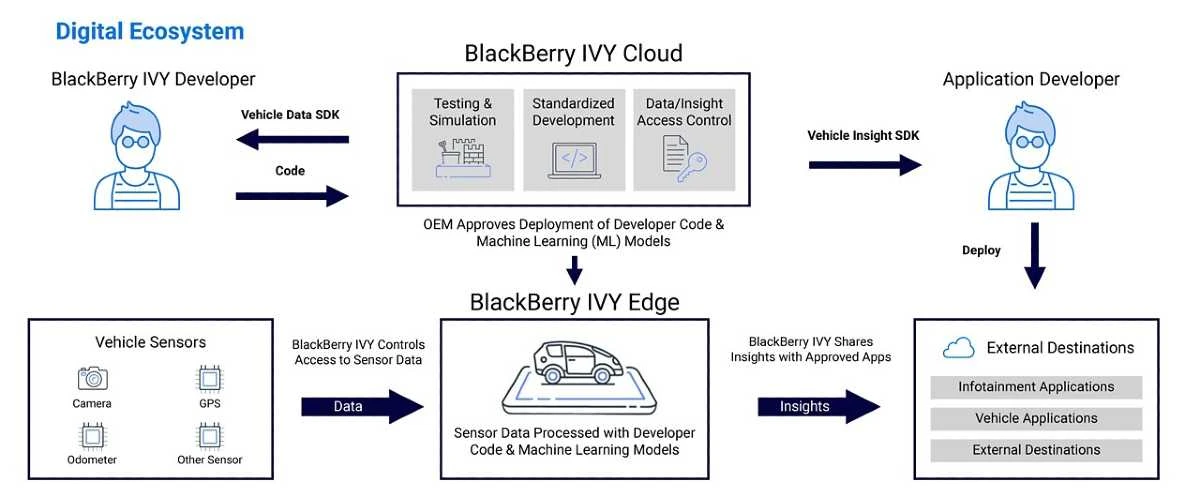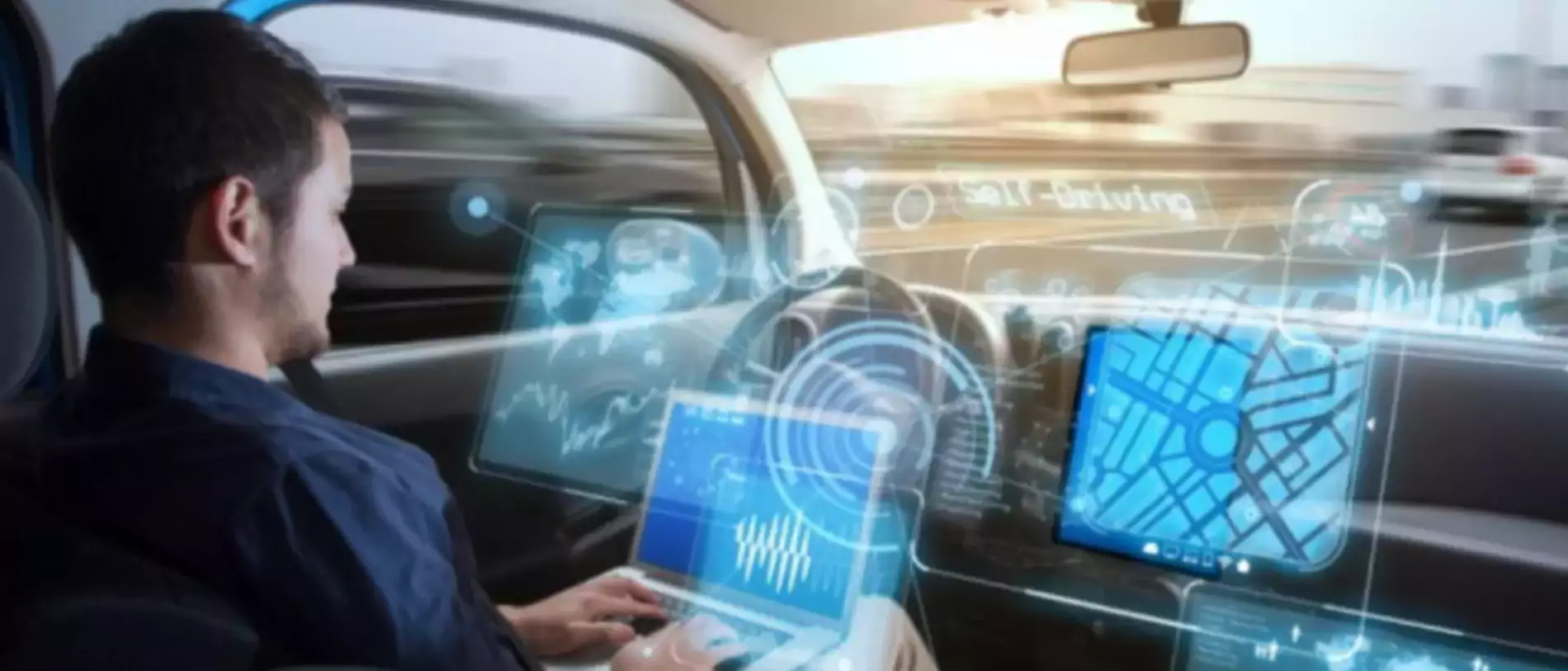BlackBerry and PATEO are collaborating on integrating Berry IVY into PATEO’s intelligent Digital Cockpit solution to develop data-driven in-vehicle services and drive new business opportunities in the Chinese market.
The two companies will work with a leading Chinese automobile manufacturer to set up a pilot project on the automaker’s all-electric model line-up. The expanded relationship is built on an existing collaboration between the two sides that leverages BlackBerry QNX technology alongside PATEO’s integration expertise to deploy advanced solutions for the Digital Cockpit market in China.
BlackBerry IVY will be integrated within PATEO’s Digital Cockpit solution to deliver Service-Oriented Architecture (SOA) solutions.
“China contributes approximately half of global electric vehicle production and is a fertile ground for rapid automotive innovation and technology leaps. It’s a real pleasure to work with one of China’s leading automakers to demonstrate a wide-ranging set of innovative solutions that will put the BlackBerry IVY platform through its paces,” said Vito Giallorenzo, SVP Corporate Development & Chief Operating Officer, IoT.
“Additionally, we couldn’t be more excited to be teaming up with PATEO as part of the project and know that there’s no stronger candidate to unlock the vast potential of the Chinese market, thanks to its extensive relationships across the entire OEM value chain.”
PATEO‘s partners in China encompass intelligent voice, entertainment / content, vehicle health monitoring, secure payment, cloud technology, etc., all of which provide ample opportunities for the two companies to develop and expand the BlackBerry IVY ecosystem of partner solutions available to Chinese consumers.
The BlackBerry IVY-PATEO vehicle pilot will also incorporate Electra Vehicles, Inc.’s unique AI/ML software, the EVE-Ai 360° Adaptive Controls that provides in real time on a continuous basis an accurate prediction of the battery State of Charge (SoC), State of Health (SoH), and projected vehicle Range.
Following the successful completion of the project, the Chinese automobile manufacturer will seek to integrate the BlackBerry IVY – PATEO solution along with Electra Vehicles’ EVE-Ai Software into its next-generation all-electric model line-up.
“We have a long history with BlackBerry and have seen first-hand the outstanding performance that BlackBerry QNX technology delivers in terms of safety, security and reliability,” said Ken Ying, Founder & Chairman of PATEO.
“Under our new strategy, we’ll fully integrate user needs into innovative design, and organically combine marketing operations with design research and development, to create products and services that bring ultimate experiences to the customer.
This collaboration is the first of many new business opportunities we hope to land for BlackBerry IVY as part of our new strategic partnership, and we’re thrilled to be taking our relationship to the next level.”
BlackBerry’s full suite of automotive offerings including BlackBerry IVY will be demonstrated at the Consumer Electronics Show (CES) in Las Vegas from January 5 – 8, 2022, at the Las Vegas Convention Center.
Visit BlackBerry at Booth #4319 in the West Hall.

Announced in December 2020 as part of a multi-year, global agreement with Amazon Web Services (AWS), BlackBerry IVY is a scalable, cloud-connected software platform that will allow automakers to provide a consistent and secure way to read vehicle sensor data, normalize it, and create actionable insights from that data both locally in the vehicle and in the cloud. Automakers can use this information to create responsive in-vehicle services that enhance driver and passenger experiences.
BlackBerry IVY addresses a critical data access, collection, and management problem in the automotive industry. Modern cars and trucks are built with thousands of parts from many different suppliers, with each vehicle model comprising a unique set of proprietary hardware and software components.
These components, which include an increasing variety of vehicle sensors, produce data in unique and specialized formats. The highly specific skills required to interact with this data, as well as the challenges of accessing it from within contained vehicle subsystems, limit developers’ abilities to innovate quickly and bring new solutions to market.
BlackBerry IVY will solve for these challenges by applying machine learning to that data to generate predictive insights and inferences, making it possible for automakers to offer in-vehicle experiences that are highly personalized and able to take action based on those insights.
BlackBerry IVY will support multiple vehicle operating systems and multi-cloud deployments in order to ensure compatibility across vehicle models and brands. It will build upon BlackBerry QNX’s capabilities for surfacing and normalizing data from automobiles and AWS’s broad portfolio of services, including capabilities for IoT and machine learning.
BlackBerry IVY will run inside a vehicle’s embedded systems, but will be managed and configured remotely from the cloud. As a result, automakers will gain greater visibility into vehicle data, control over who can access it, and edge computing capabilities to optimize how quickly and efficiently the data is processed.
With BlackBerry IVY’s integrated capabilities, automakers will be able to deliver new features, functionality, and performance to customers over the lifetime of their cloud-connected vehicles, as well as unlock new revenue streams and business models built on vehicle data.
For instance, BlackBerry IVY could leverage vehicle data to recognize driver behavior and hazardous conditions such as icy roads or heavy traffic and then recommend that a driver enable relevant vehicle safety features such as traction control, lane-keeping assist, or adaptive cruise control.
IVY could then provide automakers with feedback on how and when those safety features are used, allowing them to make targeted investments to improve vehicle performance.
Additionally, drivers of electric vehicles could choose to share their car’s battery information with third-party charging networks to proactively reserve a charging connector and tailor charging time according to the driver’s current location and travel plans.
BlackBerry IVY could also provide insights to parents of teenage drivers who may choose to receive customized notifications based on insights from vehicle sensors when the number of passengers in the vehicle changes, when the driver appears to be texting, distracted, or not observing speed limits, or when the vehicle occupancy level rises above the parents’ desired safety threshold.
Similarly, parents of infants could receive a reminder to engage the child safety lock when the vehicle detects a child in the rear seat.
BlackBerry IVY will enable automakers to compress the timeline to build, deploy, and monetize new in-vehicle applications and connected services across multiple vehicle brands and models.
Instead of investing in one-off solutions that conform to the unique engineering of different vehicle models (as they do today), automakers using BlackBerry IVY will be able to leverage different types of data as common building blocks for new services that could work across a range of models.
Automakers will be able to use the platform’s application programming interfaces (APIs) to share data and outputs with their software development teams, giving them the ability to innovate, while also protecting customer privacy and security by controlling whom can access vehicle and app data and at what level of detail.
In addition, BlackBerry IVY will make it easier for automakers to collaborate with a wider pool of developers to accelerate creation of new offerings that deliver improved vehicle performance, reduced costs for maintenance and repairs, and added convenience.
For instance, by analyzing real-time performance data, automakers could recognize the first signs of potentially faulty parts, deploy code to identify affected vehicles, notify impacted drivers, and perform targeted recalls.
Automakers will be able to remotely deploy and update the software from the platform’s Cloud Console (a web interface for managing BlackBerry IVY) to continuously improve the functionality of the system.



